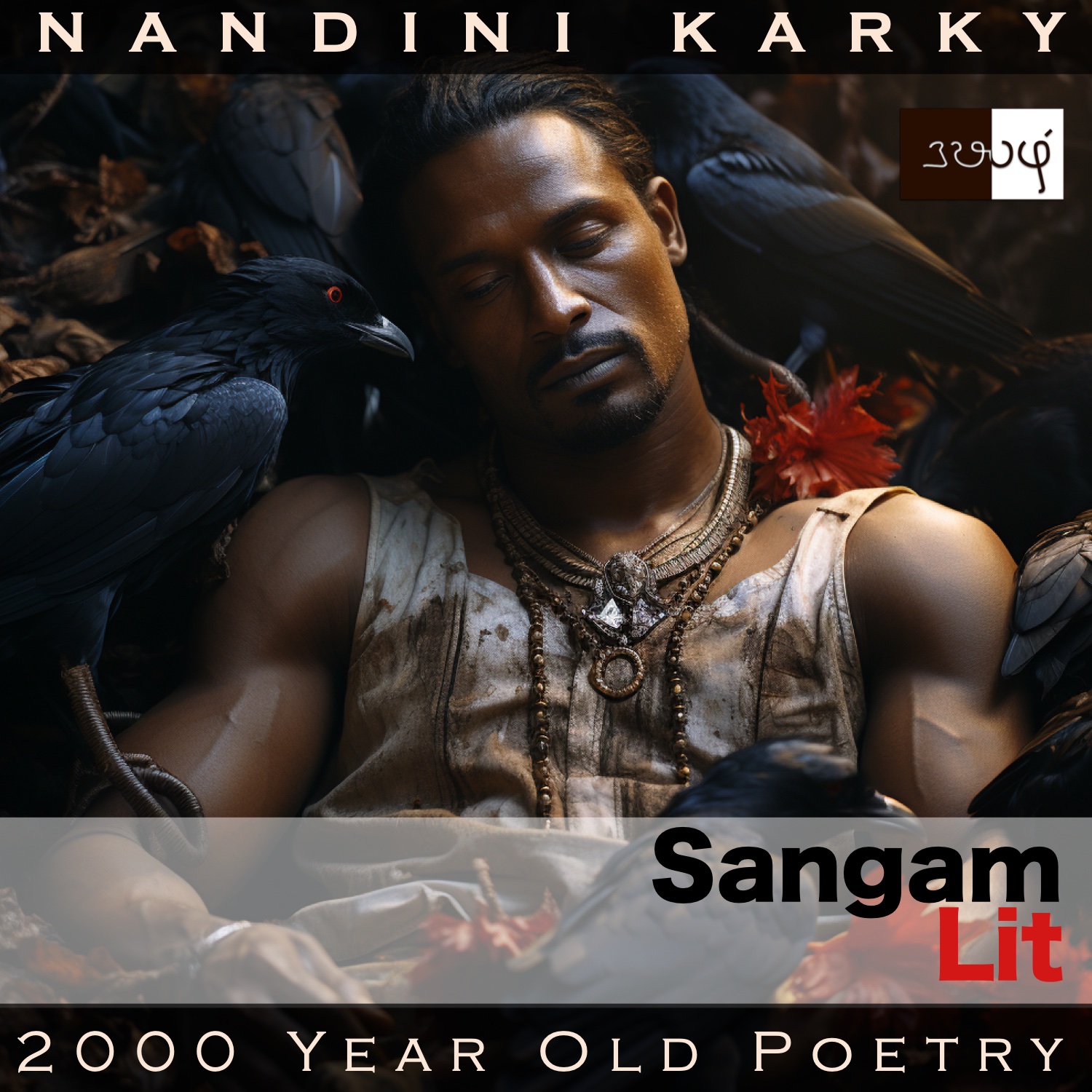Podcast: Play in new window | Download
Subscribe: Apple Podcasts | Spotify | Amazon Music | Android | iHeartRadio | TuneIn | RSS | More
In this episode, we observe the angst of a warrior’s wife, as portrayed in Sangam Literary work, Puranaanooru 291, penned by the poet Nedunkalathu Paranar. Set in the category of ‘Karanthai Thinai’ or ‘Recapturing’, the verse talks about the king’s respect and affection for this warrior.

சிறாஅஅர்! துடியர்! பாடு வல் மகாஅஅர்!
தூ வெள் அறுவை மாயோற் குறுகி,
இரும் புள் பூசல் ஓம்புமின்; யானும்,
விளரிக் கொட்பின், வெள் நரி கடிகுவென்;
என் போல் பெரு விதுப்புறுக, வேந்தே
கொன்னும் சாதல் வெய்யோற்குத் தன் தலை
மணி மருள் மாலை சூட்டி, அவன் தலை
ஒரு காழ் மாலை தான் மலைந்தனனே!
A song brimming with emotion. The poet’s words can be translated as follows:
“Children! Drummers! Bards skilled in singing! Nearing the dark-skinned man, clad in a pure white cloth, scatter those screeching dark birds around him; As for me, singing the ‘vilari’ tune, I shall chase away white foxes; The king too shall tremble in pain like me! Unto this man, who preferred to give his life for the king for no reason, the king had rendered a sapphire-filled garland, and in exchange, had taken the single-stranded garland of this warrior!”
Let’s explore the details herein. The poet speaks in the voice of a soldier’s wife calling out to children, drummers and bards around, requesting them to do what they can, so as to chase the roving vultures around the fallen warrior, described as having black skin and wearing a pure white cloth. These lines will remind us of another Puranaanooru verse, where the wife finds it difficult to embrace the form of the fallen warrior because of the birds roving around. The lady says, as for herself, she would sing a ‘vilari’ tune that is known chase away foxes that come sniffing to the battlefield. From the reality of the battlefield, the lady travels to the mind of the king and declares he is sure to suffer much like her. She knows this because she sees the gem-filled rich ornament of the leader shining on her husband’s neck, and knows that the king exchanged this jewel of his for a humble, single-stranded garland that this warrior had been wearing previously. Declaring that her husband needed no such incentives and that he would have died for the leader for no reason at all, the woman concludes reflecting on the similarity in emotion between her and the ruler of the country!
War is a grand affair and interesting how Puranaanooru verses focuses on subtle gestures and intricate emotions even in this domain of ambition. Here we find an insightful parallelism equating a wife’s feeling of loss with that of the king. In Sangam times, the wife was the principal actor in the inner life of a person while the king seems to occupy that position in the outer life of that person. This verse helps us connect the ‘mindscape’ of ‘Aham’ and ‘Puram’ verses. A poignant song on love and loss!




Share your thoughts...